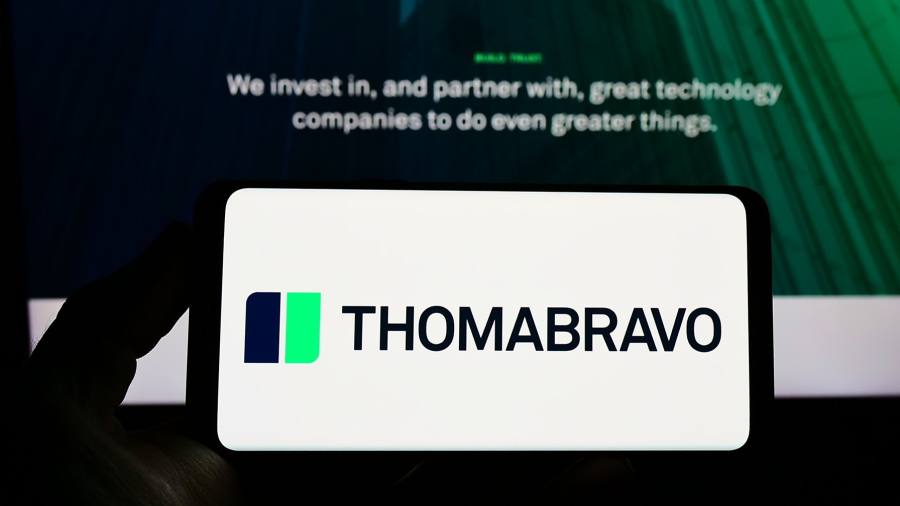
Semiconductor manufacturers cite Moore’s Law, stipulating that transistors on a microchip double every two years. Silicon Valley venture capitalists invoke a “Rule of 40”. According to this benchmark, a software company with a standalone future must have an annual revenue growth rate and an operating margin that together total more than 40 per cent.
US software company Coupa comfortably conformed to the Rule of 40 in fiscal years 2019-2022. However, current software bookings, an indication of future revenues, have collapsed in Europe and are flat in the US. Coupa announced on Tuesday that it would be taken over by technology private equity specialist, Thoma Bravo.
An enterprise value of $8bn reflects the fall from grace of Coupa, whose software helps customers track spending. The valuation implied a 77 per cent premium above the stock’s prior trading price. This represented a 75 per cent discount to Coupa’s 2021 all-time high price.
Software valuations have collapsed in 2022 amid a softening economy and higher interest rates. But at least one large shareholder wanted Coupa to resist buyout overtures. This meant the company was reduced to lamenting how poor its business prospects were after the Thoma Bravo bid became public. Coupa’s aim was to convince shareholders that capitulation was the optimal move.
The takeout multiple, including a premium, was just eight times forward revenues. Wall Street observers concur that the hyped valuations of 2021 may not return for years. Back then, software companies traded between 15 and 20 times annual revenues.
A recent FT study of IPOs completed between 2019 and 2021 showed that shares in the vast majority of companies were trading well below their listing price. Some have already opted to go private, including ForgeRock and Poshmark. Expect more tussles between boards and shareholders concerning when to sell out.
For sales to go through, investors would have to vote in favour of them. Boards will then be forcibly reminded of The Rule of 50: the percentage of shareholder support needed to clinch a deal.
Our popular newsletter for premium subscribers is published twice weekly. On Wednesday we analyse a hot topic from a world financial centre. On Friday we dissect the week’s big themes. Please sign up here.